Thimpu, Bhutan: Wildlife Trust of India (WTI) The International Fund for Animal Welfare (IFAW) is committed to helping Bhutan save its natural heritage. In 2012, IFAW-WTI signed an agreement with the Himalayan Nation’s Department of Forest and Park Services (DoFPS), Ministry of Agriculture and Forests (MoAF), as part of its global agenda to conserve iconic species like tigers, bears and elephants, and safeguard their deteriorating habitats. The agreement encompassed activities for capacity building of the frontline forest staff for more effective anti-poaching operations and wildlife rescue and handling methods; training for enforcement agencies like the Police, Army, Customs, and other enforcement agencies under MoAF in wildlife trade control as well as implementing other strategic needs. Over the last seven years, this transboundary partnership has flourished and continue to take novel steps in addressing the wildlife needs of Bhutan
Taking the partnership forward, IFAW-WTI in collaboration with Nature Conservation Division (NCD) of DoFPS have recently initiated training of frontline forest staff on Wildlife rescue and handling techniques. Conceptualized and proposed by Mr Sonam Wangdi, Chief of NCD, the aim of this training is to disseminate the learning and hand over the wildlife rescue operations to field offices in every forest range of Bhutan. To mobilize the frontline staff, WTI proposed to undertake a Training of Trainer (ToT) session with elected officials of NCD.
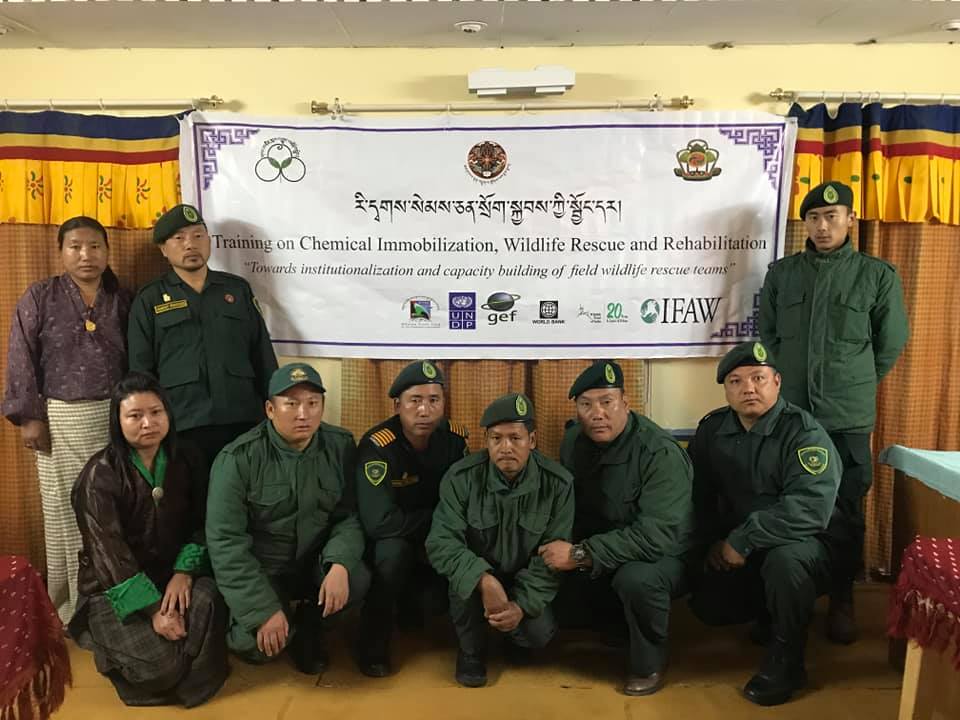
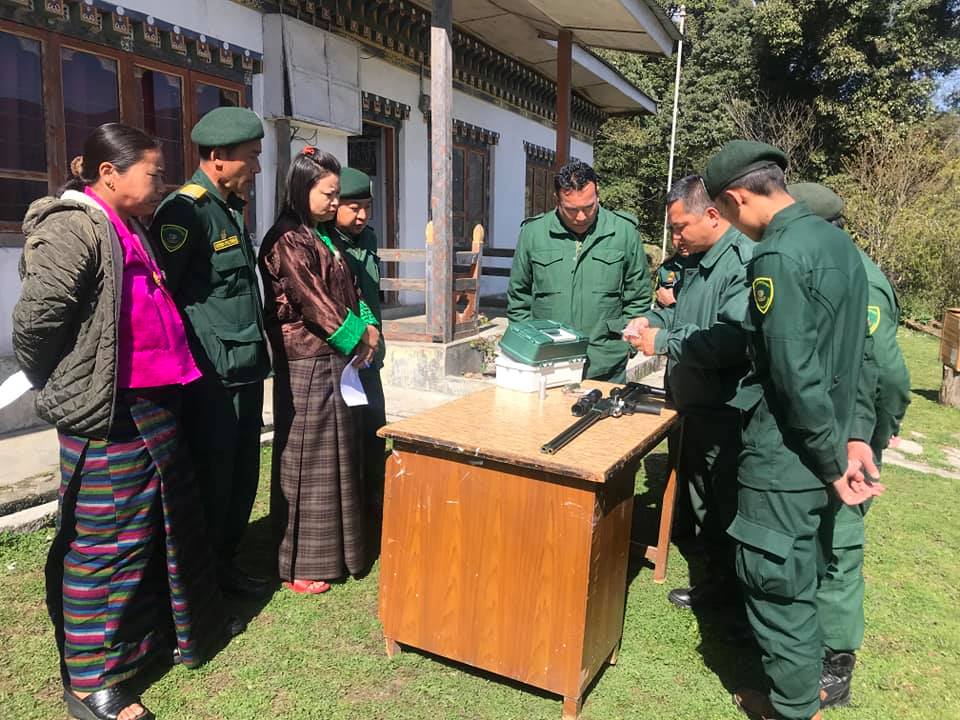
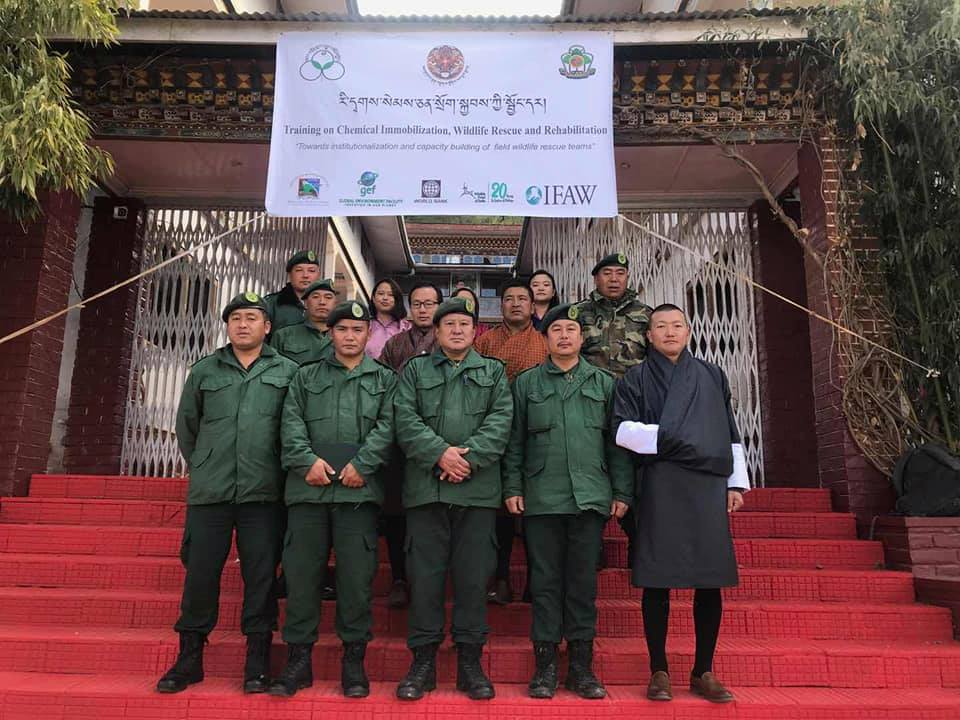
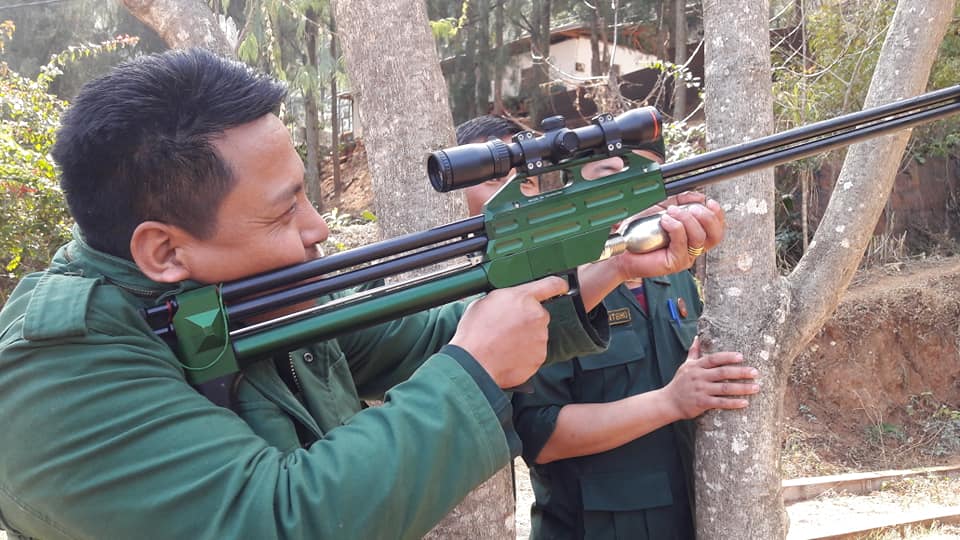
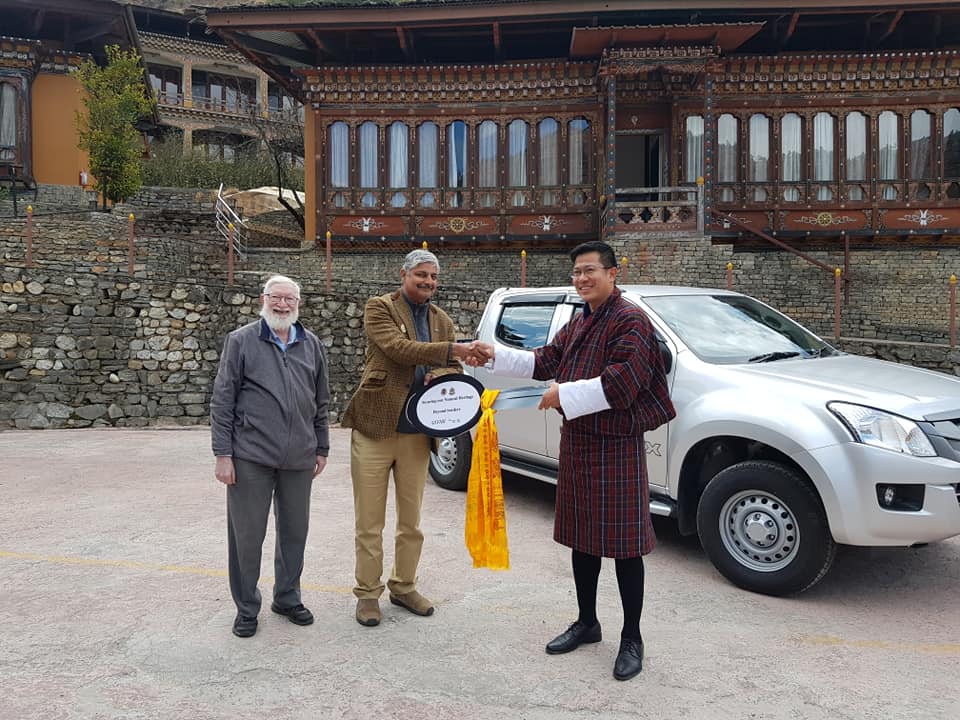
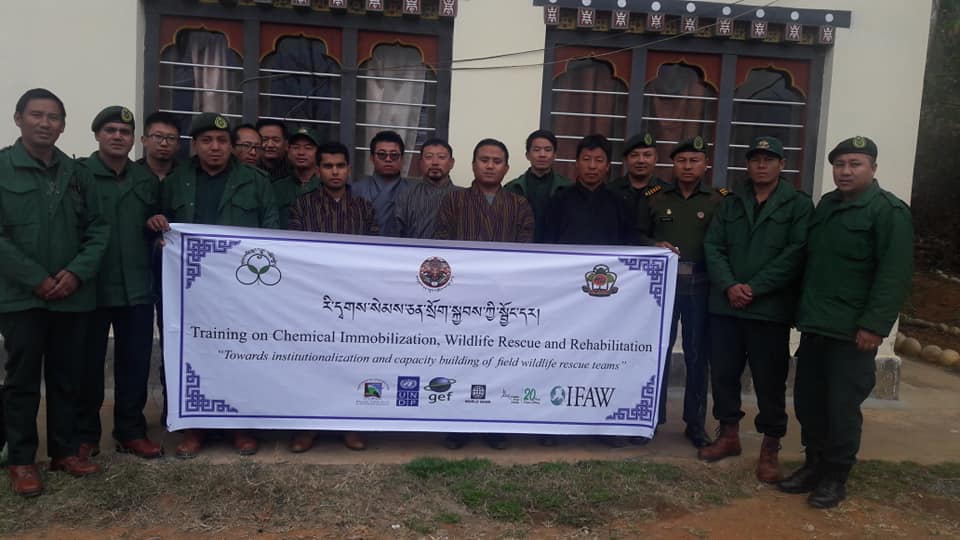
On 25th January, a three-day ToT program with the MoAF, Royal Government of Bhutan was organized in Thimphu. Thirteen officials comprising of DoFPS and Department of Livestock, MoAF, Royal Government of Bhutan attending the ToT focussed on the theme of “Wildlife Rescue, Handling and Conflict Animal Management”. Dr Ashraf, Chief Veterinarian and Dr Samshul Ali, Veterinarian from IFAW-WTI trained the participants on different aspects of the training theme i.e. Dynamics of Human-Wildlife Conflict, General principles of Rescue and Rehab, Emergency care and first aid of critically injured wildlife, Chemical capture etc. The sessions were interactive in nature as several case studies from India were shared with the participants.
Following the ToT, the trainers conducted field visits to nine forest divisions across Bhutan i.e. Paro, Wangdue, Royal Manas National Park, Sarpang, Phibsoo WLS, Jomotshangkha WLS, Samdrup Jongkhar, Pemagatshel, Samtse and Gedu FD. In each division, a three-day training on Chemical Immobilization, Wildlife Rescue and Rehabilitation were provided by the trainers and till date, a total of 118 frontline forest staff are trained. Apart from theory sessions, practical exercises were conducted focussed on dart preparations, familiarization with various remote delivery systems and demonstration on the use of blowpipes and long distant syringe projectors.
Mr Vivek Menon, ED and CEO of WTI, Dr Erach Bharucha, Trustee accompanied by Mr Sonam Wangdi attended one of these training sessions. Field gears were handed over to the trained staff. for handling wildlife rescue calls, thereby making them fully equipped to address wildlife emergencies in their region. Recently, the trained team at Taba rescued a male barking deer that was chased by stray dogs at Motithang and was treated and released back into the wild in Motithang Takin Preserve.
IFAW-WTI values their partnership with the Royal Government of Bhutan as critical and will continue to assist them in their endeavours to protect the wildlife. To read in detail about our initiative on helping save Bhutan’s Natural Heritage, please check the Conservation Action Series- Tiger Country, compiled by IFAW-WTI, here https://www.wti.org.in/wp-content/uploads/2017/03/pub_tiger_country-1.pdf